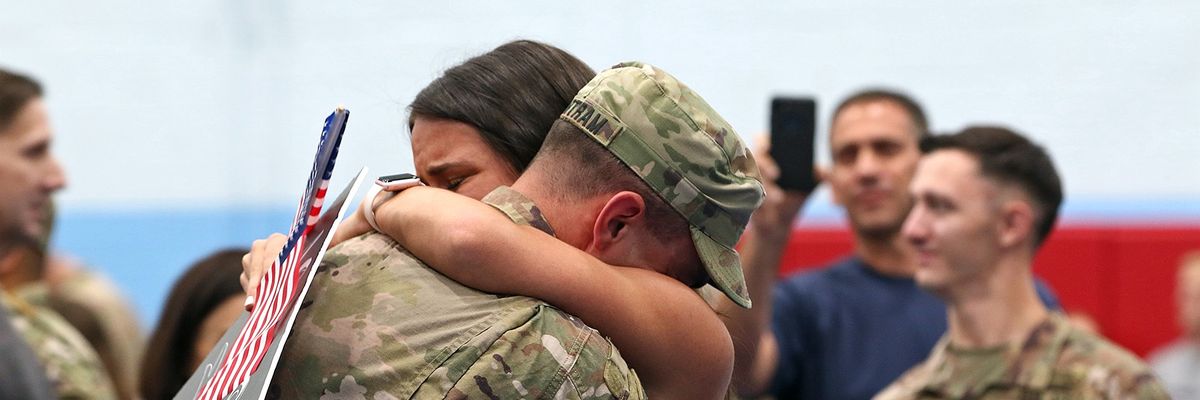President Biden recently announced that U.S. troops will fully withdraw from Afghanistan by September 11 of this year. As an active-duty Air Force spouse, this news brings me hope more than words can express.
My Afghanistan story started the day before my 15th birthday. As my family and I drove to one of the best nearby restaurants to celebrate, an announcement screamed through the radio: President George W. Bush ordered attacks on Al Qaeda and the Taliban in Afghanistan. I could not have predicted that almost exactly 16 years later, I would be hugging my husband good-bye at the airport as he prepared to deploy to support that exact war.
Since his deployment, my husband has struggled with depression and suicidal ideation. These invisible wounds are a cost that my family bears, even years after he returned. Trying to support him through his struggle and processing is exhausting, as I go about my life not knowing what could be around a corner or behind a door.
The costs of war are profound — lives, wounds, trauma, time with loved ones all become collateral damage. Over 2,300 service members have lost their lives and over 20,000 have sustained injuries in Afghanistan. At least 970,000 veterans have some degree of officially recognized disability as a result of the wars. Many more live with physical and emotional scars despite lack of disability status. Then there are us: the 2.6 million military spouses and children, in addition to parents and extended family, who are all impacted when their loved one decides to join a wartime military.
My husband’s challenges with the military mental health world led me to speak out and advocate for change. I have found opportunities for conversations about our experiences in an arena that desperately needs change, both with Congressional aides and high ranking Air Force and Space Force leadership. However, there is only so much that mental health reform through the Department of Defense can do. No solution can be complete without tackling our force’s operational tempo.
Like many military families, I am eagerly anticipating the new September timeline when this weight would be off our shoulders. Almost 20 years ago, I watched as the Twin Towers came down and our country went to war, and I followed all the developments with intense focus, knowing the U.S. would pursue those responsible for the attacks. But then, nearly two decades later, war came home — to my home.
For me, war is not an abstract concept that happens to someone else or another family; war is personal and it is painful. Families like mine watch our loved ones go off to war, and while they may return home physically, pieces of them are left on the battlefield. Others face the reality that their loved one will never come home, left with only a flag presented on behalf of a grateful nation. Still other families seem to reunite even stronger, but fractured in other unseen ways.
One friend of mine, an Army Ranger, told me that when he returned home, he felt angry that everyone back here was focused on the latest iPhone and video game console while there were real hardships overseas, like when his buddies did not come home. He struggled with his loss of innocence or what he refers to as his “child-like self.” Everyone who goes through a deployment — those who go overseas and those of us who remain on the homefront — is forever changed and forever scarred. We are ready for this war to end.
I am grateful to President Biden for taking this definitive step to ending America’s longest war. I am glad for the opportunity that the Trump-negotiated Doha agreement, which drew bipartisan support, provided in these deliberations. And now I wait with bated breath for this promise to be fulfilled.
















